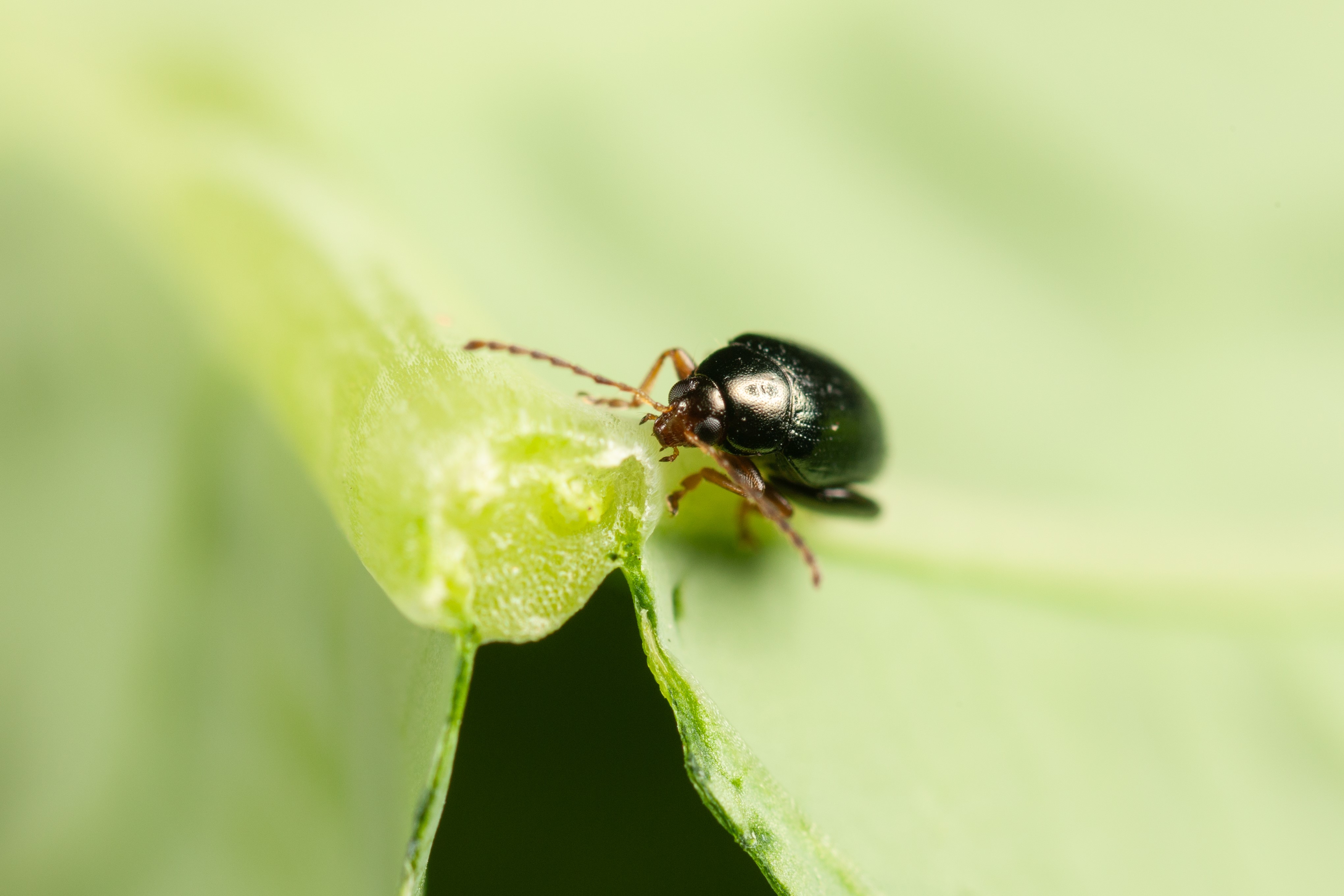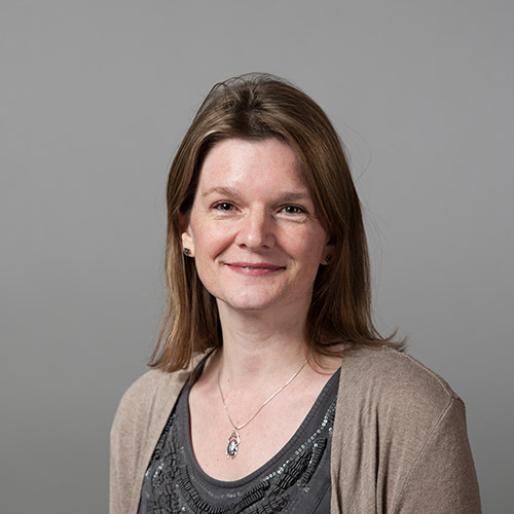The big picture: using wildflower strips for pest control
Rothamsted scientists are asking oilseed rape growers to send samples of adult cabbage stem flea beetles collected at harvest to assess levels of both pesticide resistance and parasitization by natural enemies in the UK.
In return, the Institute will provide farmers with data for their own farms and a measure of how it compares nationally.
The call for insects is part of two PhD projects to determine if a wasp recently discovered to parasitize the beetles might be an effective bio-control agent.
Cabbage stem flea beetle numbers have been increasing since the 2013 ban on neonicotinoid seed treatments in oil seed rape with serious yield losses, especially in the East and South-East of the country.
Pyrethroid sprays are currently the only control option, but resistance to them is widespread in the UK.

PhD student Patricia Ortega-Ramos, who is conducting the research, said without accurate information on the susceptibility of local populations, each treatment is a gamble.
“Farmers are risking economic loss, increased pest resistance, and harmful impacts on non-target organisms. But there is new hope for control.
“A parasitic wasp, a natural parasitoid of the adult stage of flea beetles, has been found to be present in large numbers in recent years and studies on its life cycle have revealed that the larvae of this wasp develop inside the adult beetle and kill them when they emerge. However, the biocontrol potential and distribution of these parasitoids are still unknown.
“Through this study we aim to understand the mechanisms of pyrethroid resistance developing in UK populations, and the importance of parasitoids in biological control.”
To ensure a good sample size they are asking farmers to send them at least 250 live beetles to assess both pyrethroid resistance and parasitization rate.
Ms Ortega-Ramos said the best way to collect beetles is from the grain at harvest, either from trailers or stores.
Sampling kits - comprising an electric ‘pooter’, which hoovers the insects up along with plastic containers to return them - in will be provided to the first 40 farmers to respond.
Farms in areas where beetle populations are known to be low, making it unlikely that farmers can sample more than 250 beetles, can still send at least 50 beetles for just the pyrethroid resistance testing.
The results from samples will be sent back, detailing the degree of susceptibility/resistance to pyrethroids of the beetles and the percentage parasitization of that population.
Rothamsted will also provide data so that farmers can compare their situation with the ‘national average’.
Farmers wishing to get involved can contact: patricia.ortega-ramos@rothamsted.ac.uk or caitlin.willis@rothamsted.ac.uk or visit beetlepatry.blogspot.com

Insect Ecologist

Behavioural Ecologist
Rothamsted Research is the longest-running agricultural research institute in the world. We work from gene to field with a proud history of ground-breaking
discoveries in areas as diverse as crop management, statistical interpretation and soil health. Our founders, in 1843, were the pioneers of modern
agriculture, and we are known for our imaginative science and our collaborative approach to developing innovative farm practice.
Through independent research, we make significant contributions to improving agri-food systems in the UK and internationally, with
economic impact estimated to exceed £3 bn in annual contribution to the UK economy. Our strength lies in our systems approach, which combines strategic research,
interdisciplinary teams and multiple partnerships.
Rothamsted is home to three unique National Bioscience Research Infrastructures which are open to researchers from all over the world:
The Long-Term Experiments,
Rothamsted Insect Survey and the
North Wyke Farm Platform.
We are strategically funded by the Biotechnology and Biological Sciences Research Council (BBSRC), with additional support from other national and
international funding streams, and from industry. We are also supported by the Lawes Agricultural Trust (LAT).
The Biotechnology and Biological Sciences Research Council is part of UK Research and Innovation, a non-departmental public body funded by a grant-in-aid
from the UK government.
BBSRC invests to push back the frontiers of biology and deliver a healthy, prosperous and sustainable future. Through our investments, we build and support a vibrant,
dynamic and inclusive community which delivers ground-breaking discoveries and develops bio-based solutions that contribute to tackling global challenges,
such as sustainable food production, climate change, and healthy ageing.
As part of UK Research and Innovation (UKRI), we not only play a pivotal role in fostering connections that enable the UK’s world-class research and innovation system
to flourish – we also have a responsibility to enable the creation of a research culture that is diverse, resilient, and engaged.
BBSRC proudly forges interdisciplinary collaborations where excellent bioscience has a fundamental role. We pioneer approaches that enhance the equality, diversity,
and inclusion of talent by investing in people, infrastructure, technologies, and partnerships on a global scale.
The Lawes Agricultural Trust, established in 1889 by Sir John Bennet Lawes, supports Rothamsted Research’s national and international agricultural science through the provision of land, facilities and funding. LAT, a charitable trust, owns the estates at Harpenden and Broom's Barn, including many of the buildings used by Rothamsted Research. LAT provides an annual research grant to the Director, accommodation for nearly 200 people, and support for fellowships for young scientists from developing countries. LAT also makes capital grants to help modernise facilities at Rothamsted, or invests in new buildings.